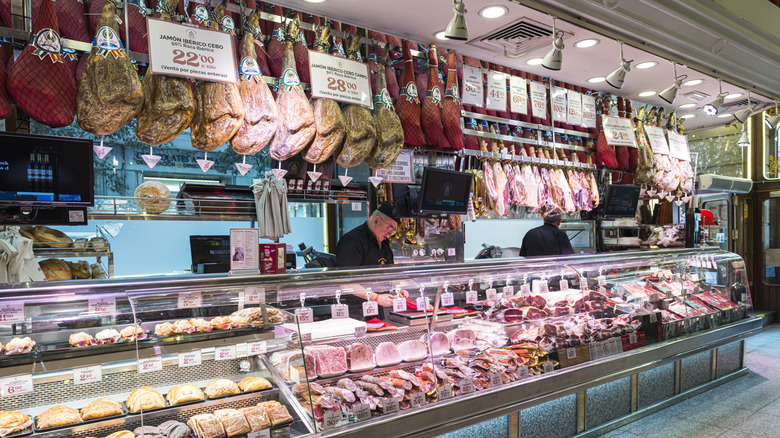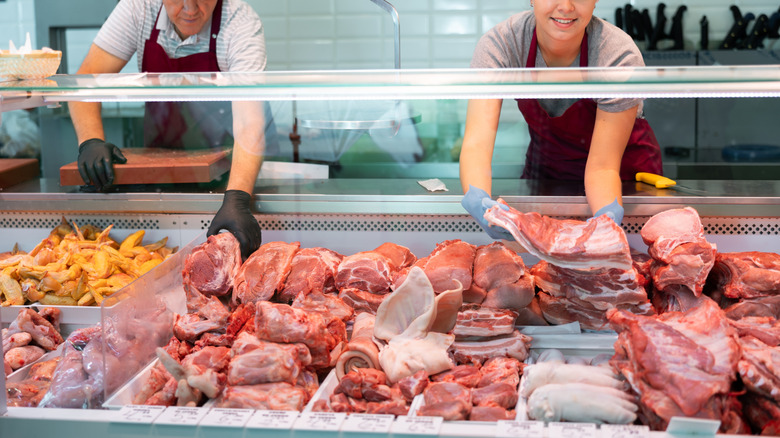The Most Affordable Place To Buy Meat Isn't The Grocery Store
Whether you're stocking up for a big party or just doing your meal prep for the week, being economical in this age of food-cost anxiety is the name of the game. That's why, despite the fact that you can find affordable steak cuts at Trader Joe's, the best way to buy meat involves leaving the supermarkets behind and sailing for more specialized waters. It turns out that butcher meat is more affordable than grocery store meat if you know what you're looking for.
To get more insight, Food Republic turned to Imam Rafiq, CEO at Halal Watch World LLC, on how to get the most chuck for our buck, so to speak. "Often, butchers provide better value than grocery stores because they cut out middlemen by sourcing meat directly from farms or wholesalers. This cuts out mark-ups that can add up to 20-30% to what a grocery store charges," Rafiq explained.
Rafiq added that there are also benefits to being able to ask for exactly what you want, rather than taking whatever the grocery store is offering. "Butchers generally have fresher cuts and will often customize them to your specifications, including by trimming excess fat, which saves money and creates less waste." In the same way that the best place to buy pizza dough is your local pizzeria, the best place to buy meat is from the local stores that specialize in it.
What kinds of meat to search out at your local butcher
When it comes to what you should be looking for at the butcher to get the best deals, there's a wide variety of options. "When I visit a budget-friendly butcher, I always inquire about the wallet-friendly selections, such as a chuck roast ($6 to $8 per pound) or feed shoulder ($3 to $5 per pound), both perfect for slow-cooked meals like beef stews," noted Imam Rafiq. "I also ask about bulk deals on ground beef – sometimes [$4 per pound] for a five-pound pack — or 'soup bones' for broth at $1 to $2 per pound."
By befriending your local butcher, you can also discover things they offer that you might not even be aware of. For example, some butcher shops sell beef tallow, allowing you to make restaurant-quality steak. "Butchers might have weekly specials or trim scraps for stir-fries that cost less," Rafiq added.
It's worth noting that boning up (forgive the pun) on your knowledge of some of the less-popular cuts of meat can save you a bundle. After all, there are only so many flank steaks each cow bought by a butcher can produce. Beef shank is a great substitute for those who love short ribs, and merlot steak can be swapped in nicely for flank.


